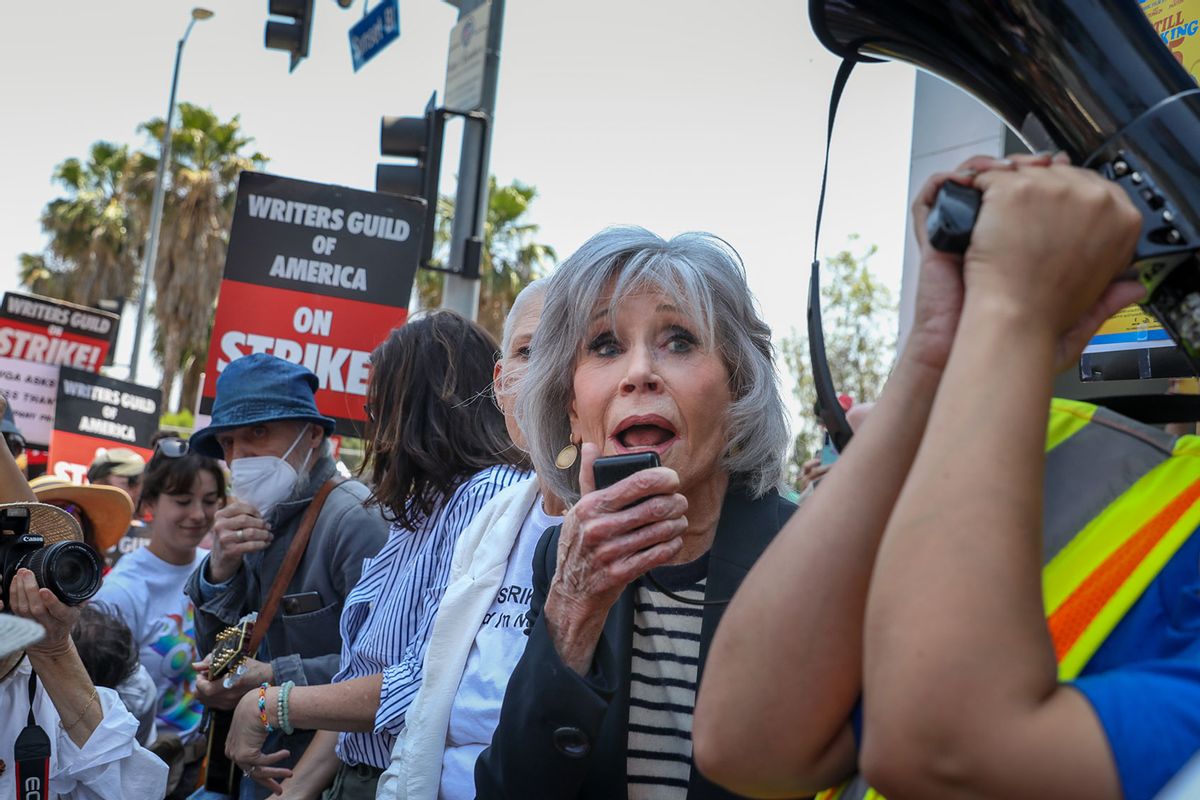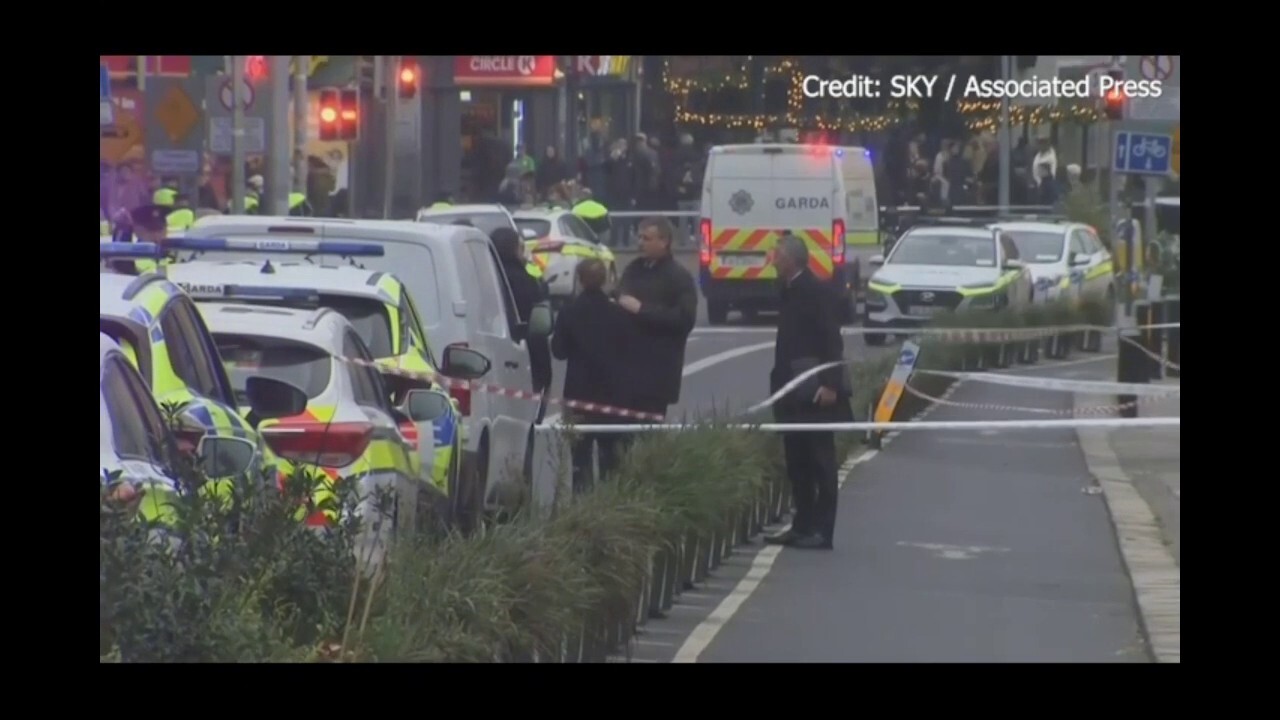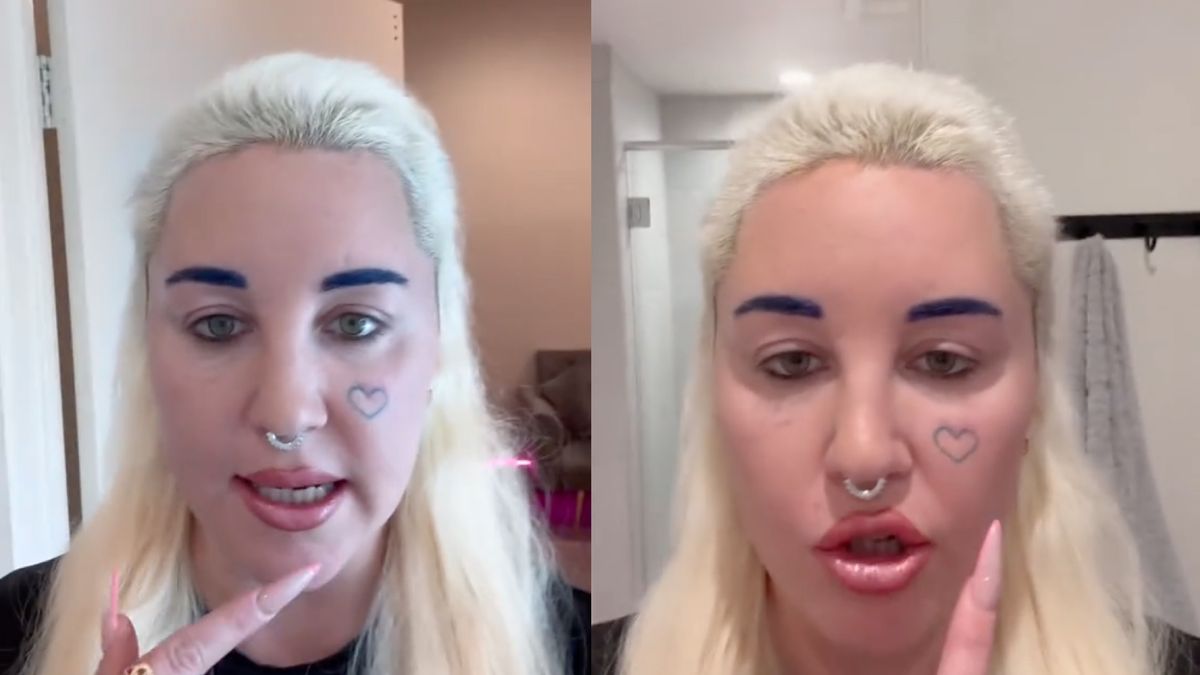Double Trouble In Hollywood: The Impact Of The Writers' And Actors' Strike

Table of Contents
H2: The Core Issues Fueling the Strikes
The Hollywood strikes aren't simply about pay; they represent a fundamental clash over the changing landscape of the entertainment industry, driven by the rise of streaming and artificial intelligence. Both the WGA and SAG-AFTRA are fighting for fair compensation and protections in this new era.
H3: Writers' Guild of America (WGA) Demands:
The WGA's strike is fueled by a number of key demands aimed at addressing the challenges faced by writers in the streaming era. These include:
- Minimum Staff Sizes on Productions: The WGA argues that shrinking writing staffs lead to overworked writers and lower-quality scripts. They are pushing for minimum staffing levels to ensure fair workload distribution.
- Fair Compensation for Streaming Residuals: Traditional television models provided writers with residuals based on reruns and syndication. Streaming services largely lack such systems, leaving writers with minimal compensation despite their shows' popularity. The WGA is demanding a fairer share of streaming revenue.
- Increased Transparency in Streaming Viewership Data: The WGA contends that studios lack transparency regarding streaming viewership data, making it impossible to accurately assess the success of their work and negotiate fair compensation.
- Regulation of the Use of AI in Writing: The WGA is deeply concerned about the potential for AI to replace human writers. They are advocating for regulations to prevent the unethical use of AI in generating scripts and to protect writers' intellectual property.
- Other Key Contract Negotiation Points: Beyond these major issues, the WGA is also negotiating for improved health insurance benefits, increased minimum wages, and stronger protections against unfair labor practices.
H3: SAG-AFTRA's Fight for Fair Compensation and AI Protections:
SAG-AFTRA's strike mirrors many of the WGA's concerns, particularly regarding fair compensation in the streaming era and the rise of AI. However, their specific grievances also include:
- Residuals and Compensation in the Streaming Era: Similar to the WGA, SAG-AFTRA is fighting for fair residuals and compensation for their work on streaming platforms. The current system often leaves actors with significantly less pay than they received under traditional television models.
- Concerns about the Use of AI in Generating Actors' Likenesses and Performances: SAG-AFTRA is deeply concerned about the potential for studios to use AI to generate actors' likenesses and performances without their consent or compensation. This raises serious ethical and legal questions about ownership and exploitation.
- Minimum Wage Increases and Improved Health Insurance Benefits: The union is pushing for significant increases in minimum wages and improved health insurance benefits to reflect the rising cost of living and the precarious nature of acting careers.
- Protection Against Self-Tape Exploitation: SAG-AFTRA is seeking better protections for actors against the exploitation of self-tape auditions, which have become increasingly prevalent in the industry.
- Other Key Grievances: SAG-AFTRA's demands also cover issues such as longer rest periods between takes, protection against the use of AI to replicate their performances, and fair compensation for background actors.
H2: The Ripple Effect on the Entertainment Industry
The double strike has already sent shockwaves through the entertainment industry, with far-reaching consequences.
H3: Production Delays and Cancellations:
The simultaneous walkout of writers and actors has led to widespread production delays and cancellations. Major film and television projects, including many anticipated releases, have been put on hold, resulting in significant financial losses for studios and production companies. Independent filmmakers and smaller productions are particularly vulnerable, facing potential project shutdowns and financial ruin.
H3: The Impact on Streaming Services:
Streaming services are facing significant challenges due to the strike. The delays in releasing new content are impacting subscriber growth and retention. Furthermore, reduced marketing and promotional activities are hindering the ability of streaming platforms to attract and retain viewers. The lack of fresh content could force streaming services to re-evaluate their content strategies.
H3: Economic Consequences for Crew and Supporting Industries:
The strike's impact extends far beyond writers and actors. Thousands of crew members, caterers, drivers, and other support staff have lost their jobs, facing significant financial hardship. Local economies dependent on film and television production are also suffering, experiencing a significant downturn in revenue and economic activity.
H2: Potential Long-Term Implications of the Hollywood Strikes
The outcome of the Hollywood strikes will have lasting consequences for the entertainment industry.
H3: Negotiated Settlements and Contract Changes:
The negotiations between the unions and the studios will determine the future of compensation models and working conditions in Hollywood. Potential outcomes include significant changes to the way writers and actors are compensated for streaming work, the introduction of regulations regarding the use of AI, and adjustments to minimum wages and benefits.
H3: The Future of Work in Hollywood:
The strikes may accelerate existing trends, such as the increasing use of AI in the creative process. However, they are also forcing a crucial conversation about the value of human creativity and the need for fair compensation for skilled professionals. The strikes could lead to new models of collaboration between studios and creatives, ensuring fairer representation and profit-sharing.
3. Conclusion:
The simultaneous writers' and actors' strikes represent an unprecedented crisis in Hollywood, highlighting significant issues of fair compensation, the impact of streaming, and the role of AI in the future of entertainment. The outcome of these negotiations will dramatically shape the industry for years to come, impacting everything from creative processes to economic models.
Call to Action: Stay informed about the developments in this crucial moment for the entertainment industry. Follow the news closely to understand the full impact of this unprecedented "double trouble" in Hollywood and the future of the writers' and actors' strike negotiations. Keep searching for updates on the writers' and actors' strike to stay informed about the evolving situation.

Featured Posts
-
 Amanda Bynes Launches Only Fans A New Chapter At 50 Month
May 18, 2025
Amanda Bynes Launches Only Fans A New Chapter At 50 Month
May 18, 2025 -
 Netflix Series Reveals Key Phone Call In Bin Laden Capture
May 18, 2025
Netflix Series Reveals Key Phone Call In Bin Laden Capture
May 18, 2025 -
 Geopolitical Shifts Indias Economic Isolation Of Pakistan Turkey And Azerbaijan
May 18, 2025
Geopolitical Shifts Indias Economic Isolation Of Pakistan Turkey And Azerbaijan
May 18, 2025 -
 Amsterdam Hotel Raid Following Knife Attack Five Injured
May 18, 2025
Amsterdam Hotel Raid Following Knife Attack Five Injured
May 18, 2025 -
 Amanda Bynes Only Fans 50 Monthly Subscription After 15 Year Acting Hiatus
May 18, 2025
Amanda Bynes Only Fans 50 Monthly Subscription After 15 Year Acting Hiatus
May 18, 2025
Latest Posts
-
 Post Only Fans Launch Amanda Bynes Spotted Out And About
May 18, 2025
Post Only Fans Launch Amanda Bynes Spotted Out And About
May 18, 2025 -
 Amanda Bynes Seen With Friend After Only Fans Launch
May 18, 2025
Amanda Bynes Seen With Friend After Only Fans Launch
May 18, 2025 -
 Amanda Bynes Steps Out New Only Fans Content Revealed
May 18, 2025
Amanda Bynes Steps Out New Only Fans Content Revealed
May 18, 2025 -
 Amanda Bynes Post Only Fans Public Appearance
May 18, 2025
Amanda Bynes Post Only Fans Public Appearance
May 18, 2025 -
 Amanda Bynes Only Fans A Look At Her Recent Public Appearance
May 18, 2025
Amanda Bynes Only Fans A Look At Her Recent Public Appearance
May 18, 2025
